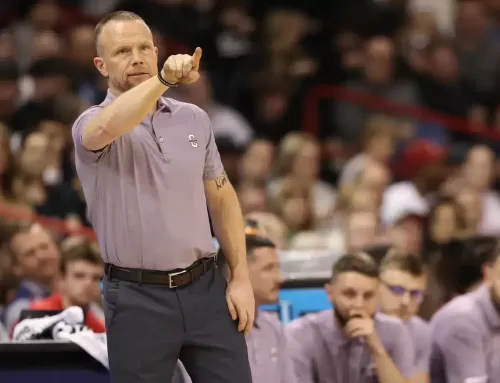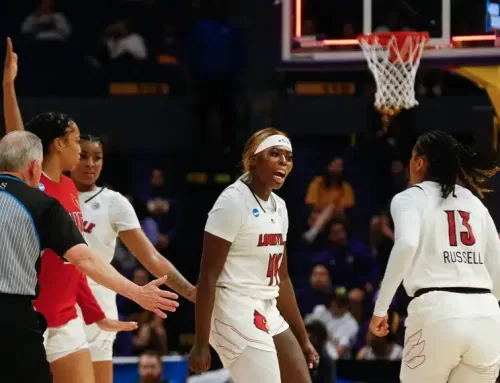Nearly 300 people crammed into a packed Rauch Planetarium and Davidson Hall classroom at the University of Louisville to hear 15 TED talks on Saturday. Before the main room opened, the lobby buzzed with anticipation for the presentation of innovative and challenging ideas. The diverse crowd ranged from young aspiring high school students to distinguished Ph.Ds.
What are TED talks? TED stands for technology, entertainment and design. The organization was founded in 1984 to spread powerful ideas in short (18 minutes or less) speeches or talks.
U of L hosted a TEDx event in the Rauch Planetarium with a simulcast room and discussion room in Davidson Hall right next door. The “x” stands for independently run TED talk.
The theme for U of L’s TEDx was “interconnected,” an examination of how human race is linked through the environment, economy, industry, humanitarian efforts and more. The three hour event had three distinct sessions: sustainability, discovery and dynamism.
U of L’s own D.A. Masalo introduced the “interconnected” theme. He explained the idea of “global space,” and science is reexamining society’s steadfast beliefs as a human phenomenon.
Justin Mog, the assistant to the provost for sustainability, spoke passionately about the environment. In his short speech, Mog challenged the infinite economic growth path the human race has embarked on and how that path cannot continue to sustain the entire population.
“Sustainability is confusing,” said Mog. “(We) know it is the right thing to do.”
Mog says that society is hesitant to embrace sustainability because it might shift the entire way individuals live. He reaffirms that society focus on “seeking balance.”
In addition to Mog, undergraduate Caleb Sheehan spoke at TEDx. Sheehan advocated for American Makers and urged everyone to find a “makerspace,” or a place where people come for encouragement, support and instructions as they make their own products. Artisans show engineers and doctors how to make pottery or anything else, and this community urges someone to “break” things if one does not understand how it works.
“If you do not know how a sewing machine works, take it apart until you know how it works,” Sheehan said.
In the event’s second session, Andrew Cozzens challenged how society thinks about time, citing studies where people have tested 20 years younger physically than they actually are. Individuals appeared younger if their environments allow them to behave like their younger selves.
Matt Hasenjager from the biology department used his own studies on animals to show the audience how social behavior must be examined in context of social networks and not in isolation.
As the final session on dynamism started, it began with a pre-recorded TED talk from Ron Finley who is a self-professed “guerrilla gardener.” He took the grassy little patch of land between the sidewalk and the street and planted a garden in front of his Los Angeles home. Finley believes gardening allows people to save money and eat healthier. He combats two problems with one swing of the shovel: obesity and poverty.
Christen Boone was one of the final speakers of the event. She spoke on philanthropy, which she defined as “promoting the welfare of others.” The three main points she made about philanthropy were, “give what you can, when you can and to what you care about.”
To view the talks in their entirety and find out more about the event, visit Tedx.uofl.com.





